I was blessed by grandparents who survived the Great Depression and many lean years in the wilderness. Several of my uncles lived off the grid most of their lives, and my great-grandfather was one of the last mountain men. Each of them handed down nuggets of wisdom that have been passed down to me and now to my daughter.
Many of these things go beyond the obvious, like the importance of stocking up on food and water or making sure you have the means to protect yourself. While there are some dashes of folksy wisdom, most of them provide food for thought in ways that could save your life one day.
To help you refine your survival strategy I thought I would pass along some of the things my grandpa and others taught me.
Never Go into the Woods with Less Than a Knife
This is a phrase passed down from my great grandfather the mountain man who lived for years as a fur trapper and then guide for the railroad’s western expansion.
Today, imagine a situation where you go out for a nice little hike, you bring the basics like a water bottle and perhaps a light snack. You intend to return in the early afternoon, so you pack sparse.
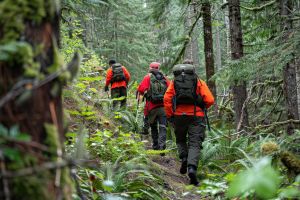 Then you accidentally get lost in the wild somehow, or something happens to you. You might sprain your ankle really badly, and you need a crutch or a cane to get back to safety. Making sure that you at least have a knife means you can do things like start a fire, bushcraft a cane, cut saplings to make a basic shelter, or even start a life-saving fire.
Then you accidentally get lost in the wild somehow, or something happens to you. You might sprain your ankle really badly, and you need a crutch or a cane to get back to safety. Making sure that you at least have a knife means you can do things like start a fire, bushcraft a cane, cut saplings to make a basic shelter, or even start a life-saving fire.
Whenever I head into the woods, I bring more than just a knife. Knowledge is just as critical for survival, and I always carry this invaluable guide filled with essential wilderness survival skills.
It’s like having an expert by your side, teaching you how to craft tools, find food, and even build shelter if needed. You don’t need to be a seasoned outdoorsman to prepare for anything nature throws your way—this resource is a game changer for staying safe and self-reliant
Mark Your Trail & Watch Where You’re Going
As a child on bushwacking hikes with my grandparents and uncles, they would often snap green twigs or turn over the occasional rotten log to subtly mark their trail. More than once, we would get turned around. I remember one time tracking a deer that left very little blood trail, that took us on an epic hike over Hill and dale.
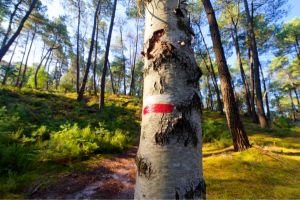 In a time like this, off the beaten trail, a compass is somewhat useless without a terrain map. My grandpa simply turned around and spotted a white of a small broken branch. He followed it back and was able to then spot a patch of moss he scuffed off a rock 20 feet away. This was in sight of a memorable tree on a hill that had been struck by lightning.
In a time like this, off the beaten trail, a compass is somewhat useless without a terrain map. My grandpa simply turned around and spotted a white of a small broken branch. He followed it back and was able to then spot a patch of moss he scuffed off a rock 20 feet away. This was in sight of a memorable tree on a hill that had been struck by lightning.
On and on he went picking our trail back, while my uncle carried the small deer on his shoulders. It’s a technique I use to this day when I go bushwacking with my daughter to get to untapped backcountry trout streams.
White & Yellow Kill a Fellow
My grandpa and my uncle used to hunt for days, and work in remote areas in the times before MREs were readily available. They were able to pack light and move fast by relying on their ability to forage enough food to keep them going.
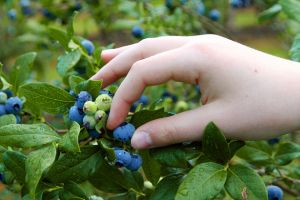
The biggest nugget of wisdom was knowing how to spot wild berries that are good to eat.
This started with the rhyme:
“White and yellow kill a fellow. Purple and blue are probably good for you. Clusters of red, make you dead.”
Their wisdom about spotting edible wild berries saved them countless times—and it’s just as valuable today. One of my favorite berries is this little-known berry, that’s illegal to grow but perfectly fine to forage, and most people overlook it.
Sticking that little rhyme in the back of your head can keep you from accidentally eating poisonous berries. However, it’s just an entry point piece of wisdom, reminding all of us of just how important it is to avoid unsafe forage foods.
Strip Down When Crossing Water
My grandfather always took his coat off or peeled off a few layers before making a tricky water crossing.
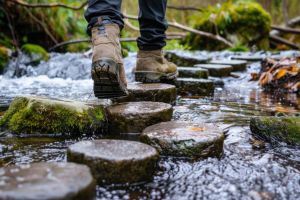 It’s a lesson he learned as a teenager crossing a creek over a downed tree during hunting season.
It’s a lesson he learned as a teenager crossing a creek over a downed tree during hunting season.
He slipped and was soaked to the skin in 30-degree weather miles from home. He made it back home. Still, the hypothermia he suffered was so severe that he carried that lesson with him for the rest of his life.
If you’re going to cross a cold body of water, or you need to go into cold water to say rescue a pet or a child, think about how you’ll survive after you get out.
Taking off your coat and stuffing it in the dry bag in your backpack with a spare pair of pants can be a lifesaver.
Ice Is Thinnest on the North Side
Living in the northland means I often have to cross frozen lakes and rivers. Not to mention moving vehicles and ice-fishing shanties across frozen lakes. My grandfather made it a point to always stay away from ice accesses and shore crossings on the north side of a lake in late winter.
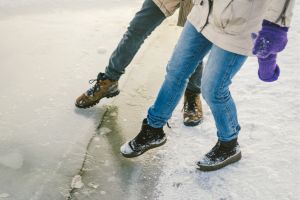 You see in the northern hemisphere; the angle of the sun means that the north side of an ice sheet is constantly receiving sunlight throughout the day. While the south side is often trapped in shadow, and thus remains colder.
You see in the northern hemisphere; the angle of the sun means that the north side of an ice sheet is constantly receiving sunlight throughout the day. While the south side is often trapped in shadow, and thus remains colder.
Related: Preparing Your Garden for Winter
If you have to cross ice in late winter or when the spring breakup is near, it’s best to avoid the north side of a lake or creek. You can also use this information to help you tell which way is North if you don’t have a compass.
Save the Best Seeds
My grandpa and grandma saved what we would today call “Heirloom Seeds.” These are seeds from vegetables and herbs that will give you viable seeds that you can use next year. Unlike a lot of the hybrid seeds sold in garden centers these days which won’t provide you with viable seeds.
Yet, as my grandpa pointed out, it’s not enough to simply save these seeds. You have to be smart about which seeds, from which plants, and make sure you’re harvesting them from ripe fruits.
This means tracking the plants from the day you plant them. Then note some of the following things.
- Which seedlings germinated fastest
- The seedlings that had the strongest stems as they grew
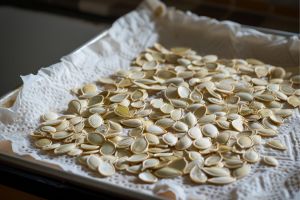 The seedlings that showed the least transplant shock when moved to the garden
The seedlings that showed the least transplant shock when moved to the garden- The plants that flowered first
- The plants that developed common diseases like early blight or wilt virus
- The plants that set the biggest or best fruits
- The plants that did better during the drought
- The plants that provided the best quality and tasting fruit
By tracking criteria like this, you get a better understanding of which plants will give you the best seeds with the highest chances of success next year. You can also use this process over multiple years to get an earlier harvest or bigger yield.
I once used this exact system to alter a strain of Caribbean aji dulce peppers to go from an average harvest date of 110 days to 85 days. It just took 5 years of refined seed selection to do it.
When it comes to medicinal herbs, I get high-quality, NON-GMO seeds packaged right here in the US from this source.
Fermentation Is Your Friend
These days when we think about preserving garden vegetables, the mind instantly goes to canning them.
Yet back in my grandparent’s time mason jars weren’t always available, and they weren’t always the most cost-effective way to preserve large harvests.
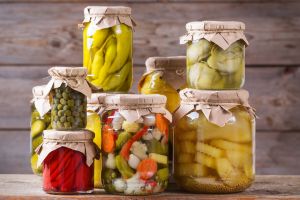
If you had a bumper crop of cabbage, cucumbers, carrots, beets, or green beans, the wise move was usually to ferment them. They would chop or shred them small enough to let lactobacillus bacteria utilize the sugars. In some cases, they would add salt to inhibit bad bacteria. Then keep the entire mass submerged in a fermentation crock.
Now fermentation like this is about more than just being able to save a large volume of vegetables at one time. Fermenting also preserves more of the nutrient value of the food, helping it become more bioavailable. Not to mention imbuing it with probiotic qualities.
Hot Peppers Can Keep You Cool
My grandpa used to grow several different types of hot peppers that he would snack on, straight from the garden when the weather was hot. Some were Italian classics like pepperoncino or Calabrian chili peppers. Others were skull-numbing hot peppers that he’d use to “Season” soups or spice up meats for the grill.
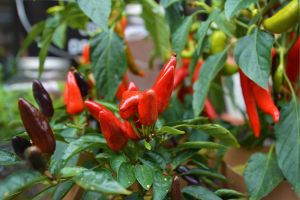 He’d even give these hot peppers away to the neighbors like he was handing out free air conditioners.
He’d even give these hot peppers away to the neighbors like he was handing out free air conditioners.
The weather was hot, and he thought he was being a good neighbor by giving the guy next door a handful of jalapenos.
My uncle called it “Sadistic Gardening.”
Related: Homemade Hot Pepper Cream for Arthritis & Joint Pain
It turns out there’s a lot of practical sense to this practice. Eating hot peppers stimulates the body to sweat, which helps cool you down.
It also promotes dilation of the sinuses and nasal membranes making it easier for you to breathe in humid, stuffy weather.
There’s even research suggesting that eating hot peppers stimulates endorphins in the brain to help us endure stressful or uncomfortable conditions.
Breathe!
My grandpa used to harp on my father and me reminding us to breathe when under stress or strain. It makes sense when you consider that a lot of people will hold their breath in a tight moment of stress. I have a bad habit of forgetting to breathe when lifting something heavy, which drives up blood pressure, starves the body of oxygen when it needs it, and hampers performance.
 However, I took the wisdom of breathing to the next level on a two-week Zen meditation retreat I attended in my twenties. The Roshi (Master) and Jiki (meditation leader) would often give us tasks that pushed our comfort zone.
However, I took the wisdom of breathing to the next level on a two-week Zen meditation retreat I attended in my twenties. The Roshi (Master) and Jiki (meditation leader) would often give us tasks that pushed our comfort zone.
This introduced stress that forced us to stay mindful and in the moment.
Returning to your breathing is a central concept in Zen meditation that with practice “Quiets the Mind Monkey.” From a technical standpoint, it also activates the parasympathetic nervous system which can help mute adrenaline stress response. While also improving focus.
You see this showing up everywhere. Exhaling to steady yourself before taking a shot with a rifle. You take a deep breath before walking in to give a big business presentation. When you’re all wound up in an argument with someone and it’s time to make a peaceful resolution, you make a big sigh.
Our grandpas, grandmas, and the generations that came before us had a lot of skills that they tried to pass down. Not all of them were absorbed, and some of them don’t fit perfectly with the way the modern world is today.
This article highlights just a few of the important lessons my grandpa taught me. There are others in my lexicon, and I’m sure you have several from your own grandparents.
My hope is that you will gain some new knowledge from these lessons and that they inspire you to write down or share some of the things your grandparents taught you.
You may also like:
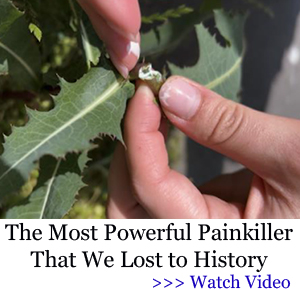 7 Prepping Items FEMA Will Confiscate When SHTF
7 Prepping Items FEMA Will Confiscate When SHTF
Fast-Growing Vegetables You Should Grow in a Crisis (Video)
How Long Can You Store Water Before It Becomes Unsafe to Drink?
Meal in a Jar Recipes You Need to Prep While You Can Still Afford It

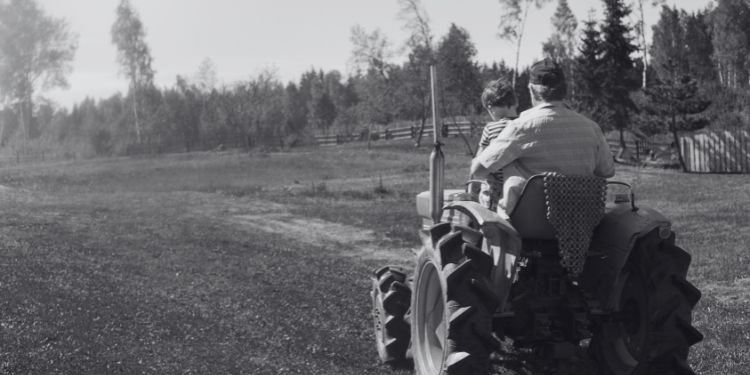







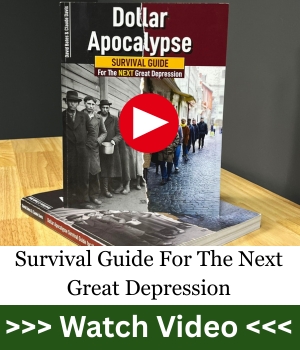



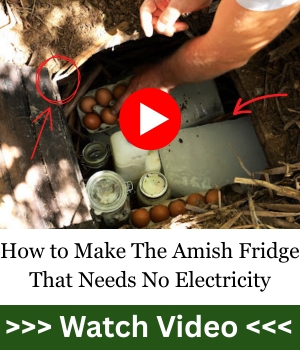








Beware overconfidence when you are furthest ahead. That’s when you stand to lose the most.
Just a quick caution – Poke has beautiful, edible-looking purple berries, but they are quite toxic!
Grandpa info is awesome!
During the family reunion….its a good time to fall alseep in the lounge chair…..
Grandpa taught me to sit on the back porch and drink beer while dinner cooks on the grill.
Boy Scouts: red on black, venom lack; red on yellow, kill a fellow. Corral Snake precaution.
Excellent article- one of my favorites
for those with autoimmune diseases- the breathing is critical
it take us out of fight or flight- to calm critical part of the healing process
I’m currently reading a book titled Breath written by James Nestor described as “The new Science of a Lost Art”!
Never knew how important breathing properly truly is!
I never got to meet my grandfathers. They had both passed away before I was born.
Me too. I was a late child and never knew them. The things you miss out on and never know until later. My mother was a stenographer in WW2. Attached to one of the big Generals of the war Mcarthur maybe. Pacific theater. Involved in retaking the Phillipines. I knew both parents had been in the war. They never talked about it much at all. Hardly any, in fact. Pa died from a fall in the mid 80s when i was a teenager. Mom lived on for for quite a few years more but fell a couple times and when i was getting her Medicare lined up i noticed on her DD214 that she had 2 Bronze Stars. Knowing little of medals, i assumed it was dome sort of unit commendation. That was incorrect. I asked her about it and she kinda made a vague statement and changed the subject. I didnt press the issue as she seemed to not want to talk about it. Later she was in the hospital and a Vietnam veteran friend of mine visited her and she told him some about being a Japanese POW and the bronze stars were for leading TWO separate groups of prisoners to freedom. Before i could ask her about that she slipped into a coma and never came out. I sent a records request to the Army, but unfortunately her records were destroyed in a fire. So it’s great to know your parents and grandparents well if you get the chance. They can teach you a lot.
Keep working.
My father Kenneth Pellor from Elmira NY, and my mother Louise Pellor from Covington PA retired and bought some cabins in Pine Grove CA. They were in tough shape, so since they could fix anything, they started on repairing them.
Well I, Gary Pellor, heard that they might need some help. I made a decision to come uo and check it out, upon arrival I found my dad in the basment of one of the cabins working on the plumbing. A real wreck. Well dad what are you doing.? Fixing the plumbing, staying busy.
Well dad you could stay busy driving your motor home, no, need to fix this. Dad a trip will keep you busy. No son I need to stay. Come on dad, take a break. Upon saying that to my dad, he turned to face me, pointed at me and said, YOU STAY BUSY OR YOU DIE. At 40 years old I didnt get it. But by the time I reached 60 I got it. My dad lived to 80 and my mom to 83. They were trusted and loved members of the neighborhood. They could fix anything including a broken heart.
Thank you for sharing the link!
Very good article and great advice from your grandpa!
Grandparents are a sure source of wisdom, as they put many of this practical knowledge into practice.
Just occurred to me, I’m older than my Grandpa was when I was a kid, so my Grandpa advice to all is, the borrower is slave to the lender.
It never accrued to me to ask creepy old people for advice…….
Right! Because when youre young u feel like ya know everything and what ya dont you can handle on yer own. Them creepy old people watch us young uns an chuckle. Whether ya want to or not, you will learn youre entire life. Some more and some less. Many will only learn enough to get to the next paycheck and some will learn enough to live and thrive. When you are around really smart people you will eventually hear from them a saying along these lines. I’ve learned enough to know how much i don’t know. That kinda sounds like some sort of oxymoron statement, but it’s not. Useta the person recognized by the Guiness Book of World Records said that the smartest man, and they named him and listed his learnings, knew about 10% of human knowledge. And that was in the 80s, LOL. That guy did nothing but go to school and get degrees his ENTIRE life. all he did was learn. His whole life. Many, many of our elderly have lots and lots of knowledge about older times, older events and older ways of living we will never know about. The elders in our lives are to be respected and listened to. Maybe they arent always right about everything, but at least respect them enough to listen to what they have to say.
I faintly remember seeing my 101 year old… great grandpa for the first time…made me cry in fear. that long white beard was not from this Eartth . Getting a kiss goodbye from the grandma was the worst.One of my grandpa’s got a divorce. No memory of him…Mom said they always argued over politics. If you go back in time say…500 years i think you can shake hands with a lot of your relatives . i gota feeling were all related in some way….God Bless the U.S.A.